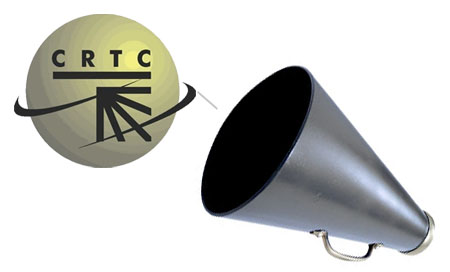Net Neutrality In Canada: An Update
Last week, the CRTC began conducting its hearing into the status of a number of issues facing Canada’s digital future, not the least of which is throttling practices. Since it’s launch just about all the major players, from telecoms to creative associations and private individuals have all had their say.
There’s still at least one more day to go as we all await to hear from Bell (who’s 3rd party throttling helped propel the issue to the forefront), but in the past week there’s been some interesting stances, as well as inadvertent admissions.
Just a couple of the more interesting tidbits include ACTRA being for neutrality…
Perhaps heralding an end to the demonization of file sharing, ACTRA emphasized that it wants to compete with illegal downloading and that the best way to do that is to ensure that its members can use applications like BitTorrent to distribute their content. In other words, copyright alone won’t address their concerns (they added the need for copyright reform) as network management practices that create a level playing field are essential. Meanwhile, the independent producers emphasized the economic potential of BitTorrent-based distribution. Moreover, ACTRA argued that it was not the role of ISPs to determine the legality of content on their networks. That position is a far cry from what groups like CRIA would like to see happen. [from michaelgeist.ca]
Of course, if an ISP was to throttle internet based video (P2P or otherwise), while not throttling its own IPTV based service, this would necessarily be anti-competitive by giving preference over their own service’s traffic. This was one of the concerns we had when Bell announced its now-defunct videostore.ca, while almost simultaneously annoucing packet shaping on its 3rd party DSL providers.
Telus all but admits this when they were before the CRTC.
As for Rogers, they had a lot to say as well, and I found this exchange somewhat interesting…
The CRTC commissioners asked about other possible methods of controlling such as:
- Charging for excess use.
- Temporarily slowing down heavy users — regardless of what they were using the internet for — during times of heavy congestion.
Englehart said he thought those would upset a lot of people, as the first would require a low cap before excess charges kicked in.
The second would affect applications such as sending photos or voice calls over the internet. [emphasis added]
“We don’t want to do that,” he said, adding that the company aims for happy customers. [from the CBC]
Of course, they don’t want to affect users making VoIP calls or sending photos, because flickr is owned by Yahoo! (Rogers/Yahoo! ring a bell?), and Rogers Home Phone really needs no explanation. What they’re saying is that if you aren’t subscribed to Rogers own services (or those of its partners), you’re a second class netizen. Thanks Rogers. Guess how many fingers I’m holding up.
Bell has yet to appear before the hearing (that happens tomorrow), but since it was their decision to throttle that helped put net neutrality to the forefront, tomorrow should be an interesting day. I hope they’re asked at least a few of the following…
* Your disclosure statement indicates that you shape from 4:30 pm to 2:00 am? Why not more specifically during periods of congestion?
* Rogers claims that P2P causes congestion at all times. Do you have a different experience?
* Many major carriers from both DSL and cable do not traffic shape at all. Why the difference?
* What percentage of bandwidth is reserved for P2P traffic (Shaw is 30%)?
* What percentage of your users are active P2P users?
* Is the shaping the same for all customers regardless of the tiered service?
* Do you shape wireless data services?
* Have you tried economic approaches (ie. Videotron’s caps) to address congestion?
* Have you considered the Juniper technology of customer controlled prioritization?
* How do you address the privacy concerns associated with DPI?
* Do you have any information on the throttling experience raised by the CFTPA presentation?
For more, visit Michael Geist’s blog, or follow along at the newly relaunched NetNeutrality.ca, which aims to be an open resource on the topic, links to audio of the hearings and much more.




